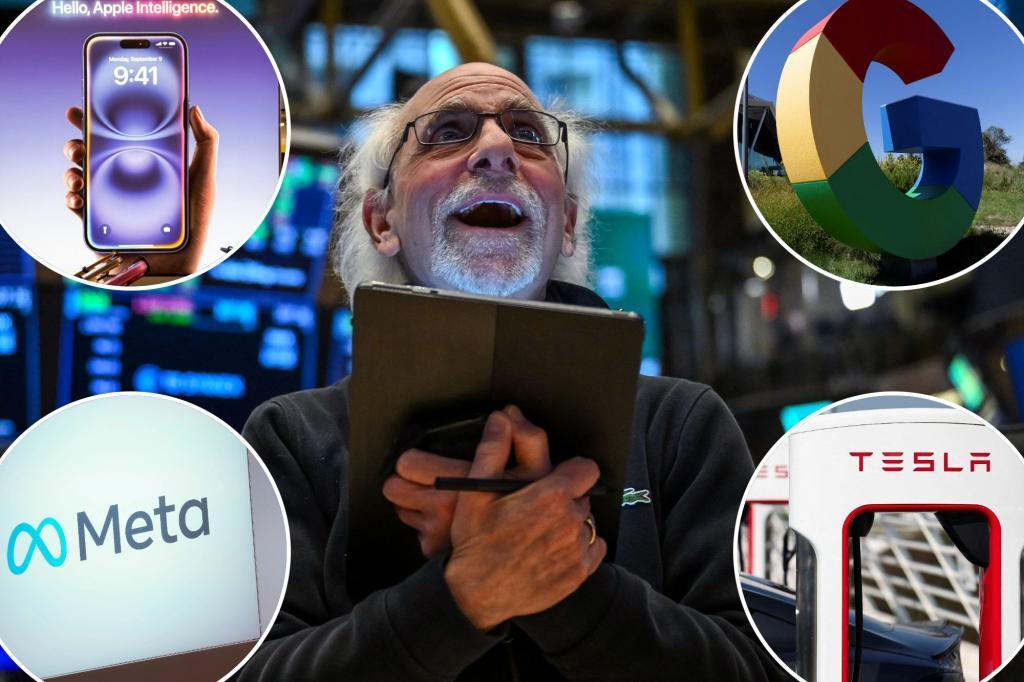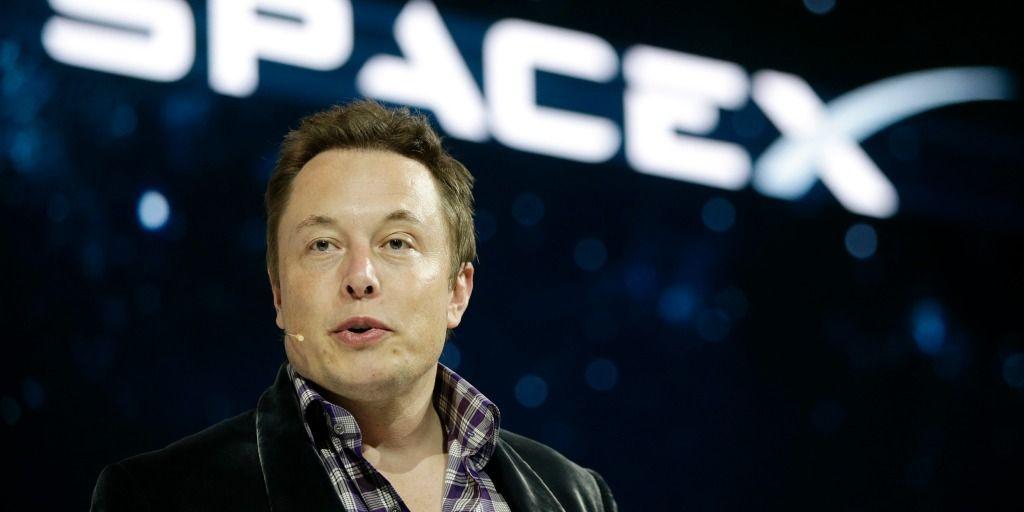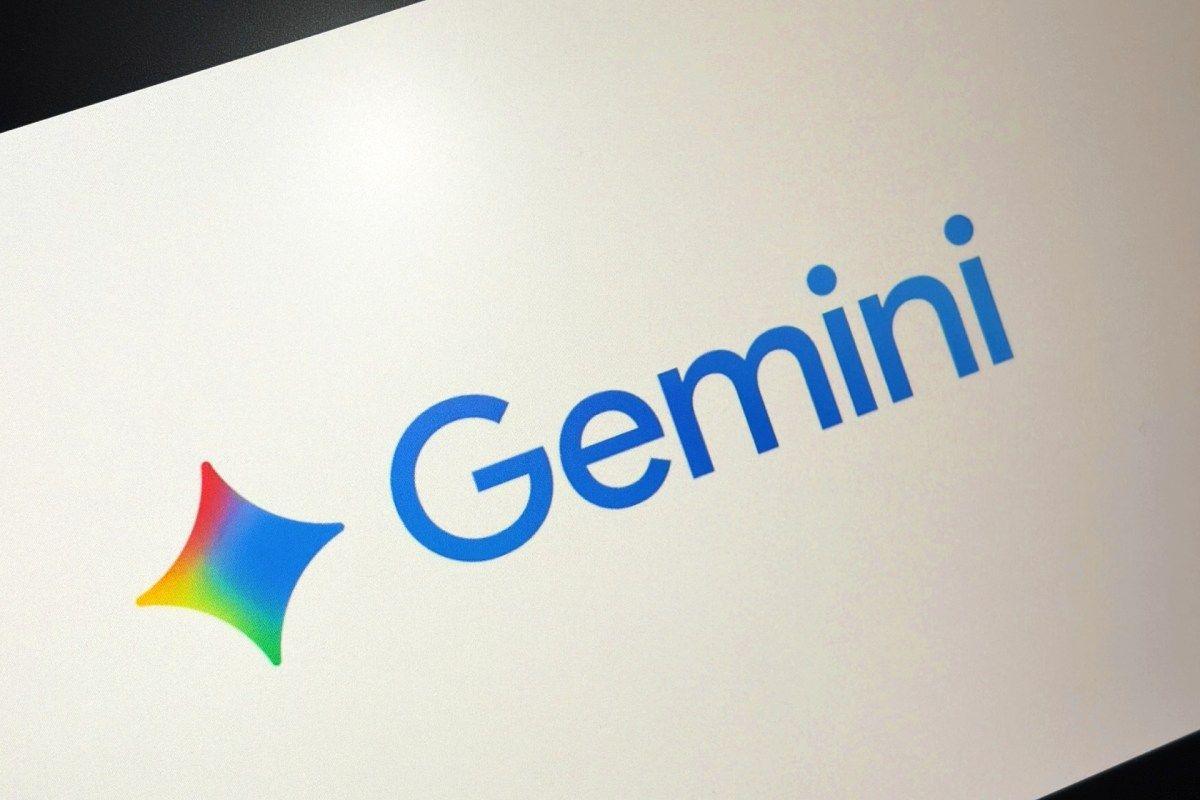Treasury Secretary Blames DeepSeek AI for Market Crash, Downplays Trump's Tariff Impact
6 Sources
6 Sources
[1]
It's a MAG-7, not a MAGA problem: Treasury Secretary Scott Bessent taunts investors, says Wall Street wipeout is due to DeepSeek-led AI bubble, not Donald Trump's tariffs
Scott Bessent defends Trump tariffs as markets plunge, shifting blame to DeepSeek and MAG-7 tech stock losses. As the S&P 500 dives, the Treasury eyes long-term bond yields to ease America's debt pressure. A pivotal moment in U.S. economic policy with massive global market impact.When President Donald Trump dropped his spreadsheet of fresh global tariffs this week, the market didn't exactly applaud. Investors panicked, wiping out around $1.5 trillion in U.S. equity value within the hour. Futures for the S&P 500 and Nasdaq 100 plummeted as Trump announced new import duties -- 34% on Chinese goods, 20% on European Union imports, and 24% on products from Japan. It looked like a classic case of markets reacting to political risk. But Treasury Secretary Scott Bessent sees it differently. He's pointing to something else entirely: the tech sector's infatuation with artificial intelligence. According to Bessent, the root of the problem lies with the MAG-7 -- that is, the big seven tech stocks: Meta, Apple, Google, Amazon, Microsoft, Nvidia, and Tesla. These stocks ballooned in value after the release of DeepSeek, China's powerful open-source AI model, back in January. In a Bloomberg TV interview, Bessent explained, "The Nasdaq peaked on DeepSeek day. So that is a MAG-7 problem, not a MAGA problem." In other words, the AI hype pushed valuations too high too fast, and what we're seeing now is a natural correction -- not a tariff-triggered collapse. Not everyone agrees with Bessent's analysis. Many investors and analysts argue that the sudden surge in import duties played a direct role in the market's downward spiral. Jacob Falkencrone, global strategist at Saxo Bank, called April 2 "a Liberation Day for the American economy" from Trump's point of view -- but a nightmare for the rest of the world. Falkencrone said this was the most aggressive round of U.S. tariffs in over a century, and that markets reacted exactly how you'd expect: broad-based sell-offs across everything from tech to retail to industrials. So while DeepSeek may have sparked earlier tech jitters, the tariffs were the final shove off the edge. There's another layer here. While stocks were getting hammered, Bessent's eyes were on something else entirely -- the bond market. The real crisis, from his point of view, isn't in equities. It's in America's growing debt load and the rising cost of borrowing. Bessent inherited a Treasury Department staring down a refinancing tsunami. Thanks to short-term borrowing strategies during the Biden years, the U.S. now has to roll over a huge amount of debt -- at higher rates -- this year. To avoid disaster, Bessent wants to shift attention to the 10-year Treasury yield, a key benchmark that affects everything from mortgage rates to national interest payments. Bessent's strategy is to engineer lower long-term borrowing costs by nudging yields down. And oddly enough, Trump's tariffs may be helping. Why? Because they've spooked investors into buying safe-haven U.S. bonds, which drives yields lower. In just three months, the 10-year Treasury yield has fallen from 4.80% to 4.08%. That's huge. It means the U.S. can refinance its debt more affordably. And that could be the difference between managing the national debt or spiraling into what some are calling a sovereign debt doom loop. Big names like Ray Dalio and Stanley Druckenmiller have warned the U.S. only has a few years before investors stop showing up to buy its debt. If that happens, interest costs would explode, and the country could face a full-blown fiscal crisis. That's the trillion-dollar question. If Bessent's plan works, pushing down yields might buy the U.S. time to fix its debt problems. But in the short term, markets may continue to suffer. For now, Wall Street pain seems to be a trade-off the administration is willing to accept. Bessent isn't trying to prop up stock prices -- he's trying to avoid a credit meltdown. Whether that gamble pays off will take time to see. One thing is clear: this isn't just about Trump or tariffs or tech hype. It's about a fragile financial system trying to hold itself together while facing inflation, rising debt, and the unknown consequences of the AI revolution. It's not black and white. Trump's tariffs undoubtedly rattled global trade confidence, but the DeepSeek AI bubble and unsustainable MAG-7 valuations had already set the stage for a pullback. Add in fear of recession and a spiraling debt load, and you've got a perfect storm. Bessent's "Mag-7, not MAGA" line might sound like political spin -- but it reflects a deeper reality. The issues rocking markets aren't just policy-based. They're systemic. And they're far from over. Why did Scott Bessent blame the market crash on DeepSeek AI and not Trump tariffs? Because he believes the MAG-7 tech bubble burst was the real trigger, not the tariffs. What is Scott Bessent's plan to stop the U.S. debt crisis? He wants to push down 10-year Treasury yields to lower borrowing costs.
[2]
Treasury Secretary Scott Bessent Says Stock Market Decline Is Due To China's DeepSeek, Not Trump's Policies: 'Mag 7 Problem, Not A MAGA Problem'
Enter your email to get Benzinga's ultimate morning update: The PreMarket Activity Newsletter Scott Bessent, the U.S. Treasury Secretary, has attributed the recent stock market decline to the Chinese AI tool DeepSeek rather than President Donald Trump's policies. What Happened: During an interview with conservative commentator Tucker Carlson, Bessent emphasized that the market downturn began with the announcement of DeepSeek. He stated, "For everyone who thinks these market declines are all based on the President's economic policies, I can tell you that this market decline started with the Chinese AI announcement of DeepSeek." "...What's happening with the market I'd say it's more a Mag 7 problem, not a MAGA problem," Bessent added. The "Mag 7" refers to seven high-performing tech stocks that had previously driven the market higher. See Also: Trump Tariffs Erode $5 Trillion In Market Cap In 2 Days As China Retaliates, Jerome Powell Warns Of Inflation Despite a 10% drop in U.S. stocks following Trump's new global tariff regime announcement, Bessent downplayed the impact of these policies. He also reiterated the administration's commitment to a "strong dollar" policy, dismissing claims that tariffs were meant to weaken the dollar. The dollar has declined nearly 6% against major currencies since Trump's inauguration. Why It Matters: The market's reaction to President Trump's tariff announcement has been significant. The U.S. markets faced a severe downturn, with S&P 500 companies losing $5 trillion in value since the tariffs were announced. This has led to concerns about potential global turmoil and negative impacts on consumers, as highlighted by former Microsoft CEO Steve Ballmer in an interview with CNBC. Ballmer warned that the escalating tariffs could have far-reaching effects on the economy. Furthermore, a Goldman Sachs analyst has pointed out that Trump's tariffs could shift U.S. spending from goods to services, creating uncertainty for e-commerce and advertising industries. This uncertainty is expected to slow corporate decisions and impact economic activity for the remainder of the year. Read Next: 'If You're Going To Do Dumb Things Because Your Stock Goes Down...:' Warren Buffett's Old Warning Gains Steam As US Stocks Wipe Out $5 Trillion After Trump Tariffs Disclaimer: This content was partially produced with the help of AI tools and was reviewed and published by Benzinga editors. Photo courtesy: Shutterstock Market News and Data brought to you by Benzinga APIs
[3]
'It's More A Mag 7 Problem Than A MAGA One,' Says Bessent As Wall Street Implodes - Apple (NASDAQ:AAPL), Amazon.com (NASDAQ:AMZN)
Feel unsure about the market's next move? Copy trade alerts from Matt Maley -- a Wall Street veteran who consistently finds profits in volatile markets. Claim your 7-day free trial now. As Wall Street crumbles under the weight of tariffs and deepening economic fears, Treasury Secretary Scott Bessent is pointing the finger not at the Trump administration policy but at the market's former darlings. Speaking on the Tucker Carlson Podcast Friday, Bessent said the ongoing equity sell-off is "more a MAG Seven problem than a MAGA one," referring to the mega-cap tech leaders -- Microsoft Corp. MSFT, Apple Inc. AAPL, NVIDIA Corp. NVDA, Alphabet Inc. GOOG GOOGL, Amazon Inc. AMZN, Meta Platforms Inc. META and Tesla, Inc. TSLA -- that have led markets for much of the past two years. While Bessent delivered his remarks, the S&P 500 and Nasdaq 100 indices were tumbling through their worst week since March 2020, hammered by mounting fears of tariffs, inflationary pressures, and potential global retaliation that triggered a sharp selloff in risk assets. The iShares Semiconductor Index SOXX is down by an astonishing 17% this week alone, on track for its worst weekly decline since 2001, at the peak of the dot-com crash. Apple Inc., the largest U.S. company by market cap, is suffering its worst 2-day selloff since 2013, shedding over $500 billion in value alone. The carnage has erased trillions of dollars in paper wealth, hammering retirement accounts, mutual funds, and 401(k) balances across the country. It's DeepSeek, Not Tariffs, Bessent Claims Bessent insists the real trigger was not Trump's universal tariff plan but a reassessment of U.S. tech valuations following China's DeepSeek AI breakthrough. In his words, the sell-off "started with DeepSeek," suggesting that Wall Street had priced in AI dominance prematurely and is now correcting that assumption. "This isn't about tariffs, it's about a dose of reality in the AI space." Bessent Defends Tariff Revolution "This is transformational for the American economy, the American worker, and the new Republican alignment," Bessent said. Bessent didn't shy away from defending the economic rationale. He cited new MIT research showing that the Trump administration's original 20% tariffs on China only lifted U.S. prices by 0.7%, suggesting that foreign producers absorbed much of the impact. Bessent emphasized that tariffs are about more than just economics -- they're about security. "Economic security is national security," he said, referencing COVID-19 as a wake-up call that exposed the fragility of global supply chains. "We don't make our own medicine, our own chips, or our own ships," Bessent noted, advocating for reshoring critical industries to prevent strategic vulnerabilities. The administration's long-term strategy, according to Bessent, is to use tariffs as a bridge: boost revenue in the short run while incentivizing companies to build domestically, thereby reducing the need for tariffs altogether. "First, we collect. Then, we build. Then, the tariffs drop -- but revenue from taxes and jobs goes up." "We're pushing to get the tax bill done so we can guarantee the low taxes," he added. Bessent dismissed the threat of retaliation from global trading partners, indicating that surplus nations like China and Germany are in no position to strike back effectively. "We are the debtor nation. We have the trade deficits. The surplus nation is in the weaker position," Bessent said, asserting that China's economic model -- heavily reliant on exports -- is "the most unbalanced in the history of the modern world." "I think President Trump has broken their business model with these tariffs," he said. "They [China] can't survive without it [the surplus]." "I think the Europeans are going to have to rebalance, too," he noted, pointing to Germany's overdependence on exports and expensive energy policies as unsustainable. Market Reactions Stocks deepened their decline in afternoon trading in New York, with investors finding little comfort from either fiscal or monetary leaders. Earlier in the day, Fed Chair Jerome Powell reaffirmed that the central bank is in a strong position and sees no urgency to begin cutting interest rates. The S&P 500 index - as tracked by the SPDR S&P 500 ETF Trust SPY - is down 5%, on track for its worst day in five years. The tech-heavy Nasdaq 100 - tracked by the Invesco QQQ Trust QQQ - sunk 5.1%, eyeing its worst day since March 2020. Within Magnificent Seven stocks, Tesla fell 9.8%, followed by Nvidia's 7.2% decline. Read now: Powell Says It's 'Too Soon To Say' On Rates As Tariffs 'Likely To Raise Inflation' Photo: Maxim Elramsisy/Shutterstock AAPLApple Inc$191.62-5.69%Stock Score Locked: Want to See it? Benzinga Rankings give you vital metrics on any stock - anytime. Reveal Full ScoreEdge RankingsMomentum77.15Growth44.98Quality83.61Value7.46Price TrendShortMediumLongOverviewAMZNAmazon.com Inc$176.38-1.14%GOOGAlphabet Inc$151.03-1.05%GOOGLAlphabet Inc$149.02-1.13%METAMeta Platforms Inc$514.67-3.19%MSFTMicrosoft Corp$365.60-2.01%NVDANVIDIA Corp$96.26-5.44%QQQInvesco QQQ Trust, Series 1$431.02-4.36%SOXXiShares Semiconductor ETF$160.88-5.56%SPYSPDR S&P 500$513.75-4.28%TSLATesla Inc$244.35-8.58%Market News and Data brought to you by Benzinga APIs
[4]
Treasury secretary blames China's DeepSeek for stock-market plunge:...
The stock market plunge has more to do with the surprise emergence of China's DeepSeek artificial intelligence tool earlier this year than it does with President Trump's policies, Treasury Secretary Scott Bessent said in an interview with Tucker Carlson released on Friday. "For everyone who thinks these market declines are all based on the President's economic policies, I can tell you that this market decline started with the Chinese AI announcement of DeepSeek," Bessent told Carlson. "If I were the analyze in my old hat, and this is the only time I'm going to talk about it, ... what's happening with the market I'd say it's more a Mag 7 problem, not a MAGA problem," Bessent, who used to run a hedge fund, said, referring to the shares of the "Magnificent 7" - the seven high-performing tech stocks that had helped drive the market higher before its recent selloff. US stocks have tumbled by around 10% in the two days since Trump announced a new global tariff regime that was more aggressive than analysts and investors had been anticipating.
[5]
U.S. market decline tied to China's AI tool, not Trump's policies: Treasury Secretary By Investing.com
Investing.com -- U.S. Treasury Secretary Scott Bessent has attributed the recent stock market decline to the unexpected emergence of China's DeepSeek artificial intelligence tool earlier this year, rather than President Donald Trump's economic policies. In an interview released on Friday, Bessent dismissed the idea that the market downturn was solely a result of the President's strategies. Bessent, who formerly managed a hedge fund, asserted that the market decline commenced with the announcement of DeepSeek by the Chinese. He suggested that the market issues were more related to the 'Magnificent 7', referring to the seven high-performing tech stocks that previously propelled the market upward, rather than being a MAGA (Make America Great Again) problem. This statement comes as U.S. stocks have seen a drop of approximately 10% in the two days following Trump's announcement of a more aggressive global tariff regime than what analysts and investors had initially expected.
[6]
Treasury's Bessent: Market drop a "Mag 7" problem, not a MAGA one - Tucker Carlson interview
(Reuters) - The stock market plunge has more to do with the surprise emergence of China's DeepSeek artificial intelligence tool earlier this year than it does with President Donald Trump's policies, U.S. Treasury Secretary Scott Bessent said in an interview with Tucker Carlson released on Friday. "For everyone who thinks these market declines are all based on the President's economic policies, I can tell you that this market decline started with the Chinese AI announcement of DeepSeek," Bessent told Carlson. "If I were the analyze in my old hat, and this is the only time I'm going to talk about it, ... what's happening with the market I'd say it's more a Mag 7 problem, not a MAGA problem," Bessent, who used to run a hedge fund, said, referring to the shares of the "Magnificent 7" - the seven high-performing tech stocks that had helped drive the market higher before its recent selloff. U.S. stocks have tumbled by around 10% in the two days since Trump announced a new global tariff regime that was more aggressive than analysts and investors had been anticipating. (Reporting By Dan Burns; Editing by Chizu Nomiyama)
Share
Share
Copy Link
U.S. Treasury Secretary Scott Bessent attributes recent stock market decline to China's DeepSeek AI tool rather than Trump's tariff policies, calling it a "MAG-7 problem, not a MAGA problem."

Treasury Secretary Shifts Blame from Tariffs to AI
In a surprising turn of events, U.S. Treasury Secretary Scott Bessent has attributed the recent stock market decline to China's artificial intelligence tool DeepSeek, rather than President Donald Trump's newly announced tariff policies. This statement comes amidst a significant market downturn, with U.S. stocks tumbling approximately 10% in the two days following Trump's announcement of a more aggressive global tariff regime
1
2
.The MAG-7 vs. MAGA Debate
Bessent, speaking on Tucker Carlson's podcast, characterized the market situation as "more a MAG Seven problem than a MAGA one"
3
. The "MAG-7" refers to the seven high-performing tech stocks - Microsoft, Apple, Nvidia, Alphabet, Amazon, Meta, and Tesla - that have been driving market growth in recent years4
. This perspective suggests that the market's issues stem more from a correction in tech valuations than from the impact of new tariff policies.DeepSeek: The Alleged Catalyst
According to Bessent, the market decline "started with the Chinese AI announcement of DeepSeek"
5
. DeepSeek, an open-source AI model released by China in January, allegedly triggered a reassessment of U.S. tech valuations, particularly in the AI space. Bessent argues that Wall Street had prematurely priced in AI dominance and is now correcting that assumption3
.Defending the Tariff Strategy
Despite the market reaction, Bessent defended the administration's tariff strategy. He cited MIT research suggesting that previous tariffs on China only lifted U.S. prices by 0.7%, with foreign producers absorbing much of the impact
3
. Bessent framed the tariffs as part of a broader strategy to enhance national security and reshape global trade dynamics.Economic Security and Reshoring
Bessent emphasized the connection between economic and national security, pointing to COVID-19 as a wake-up call that exposed vulnerabilities in global supply chains. The administration's long-term strategy, according to Bessent, involves using tariffs to boost short-term revenue while incentivizing domestic production
3
.Related Stories
Market and Global Reactions
The market's response to these developments has been severe. The S&P 500 and Nasdaq 100 indices experienced their worst week since March 2020, with the iShares Semiconductor Index facing its steepest weekly decline since 2001
3
. Globally, there are concerns about potential retaliation from trading partners, though Bessent dismissed these threats, arguing that surplus nations like China and Germany are in a weaker position to retaliate effectively3
.Federal Reserve's Stance
Amidst the market turmoil, Federal Reserve Chair Jerome Powell reaffirmed that the central bank sees no urgency to begin cutting interest rates, potentially adding to investor concerns
3
. This stance, combined with the ongoing debate over the causes of the market decline, has created a complex and uncertain economic landscape.As the situation continues to unfold, the interplay between AI advancements, trade policies, and market dynamics remains a critical area of focus for investors, policymakers, and economists alike.
References
Summarized by
Navi
Related Stories
Magnificent Seven Tech Stocks Surge as Trump Pauses Tariffs, Boosting AI Investments
10 Apr 2025•Business and Economy

Wall Street Navigates Rising Trade Risks and Market Highs Amid Political Uncertainty
18 Jul 2024

Trump's Taiwan Comments and Biden's Trade Plans Shake Semiconductor and AI Markets
18 Jul 2024

Recent Highlights
1
French Police Raid X Office as Grok Investigation Expands to Include Holocaust Denial Claims
Policy and Regulation

2
OpenAI launches Codex MacOS app with GPT-5.3 model to challenge Claude Code dominance
Technology

3
Anthropic releases Claude Opus 4.6 as AI model advances rattle software stocks and cybersecurity
Technology





